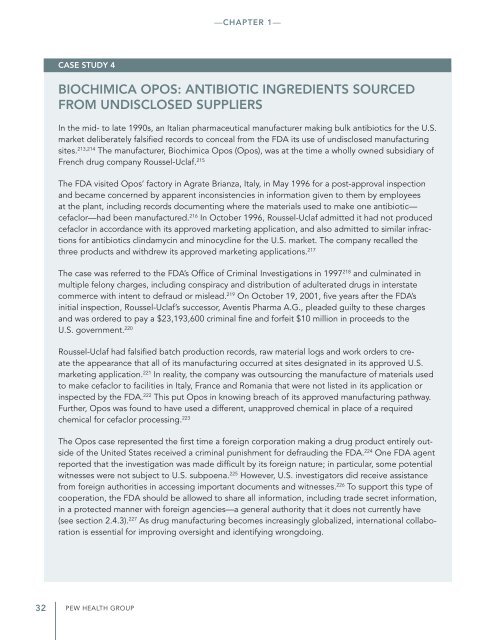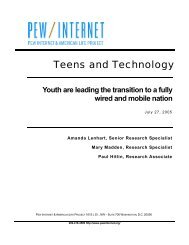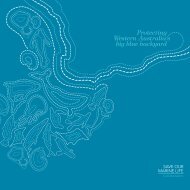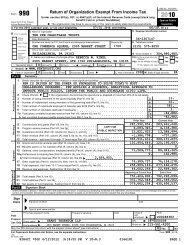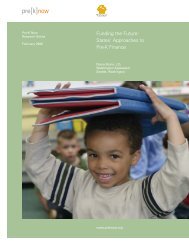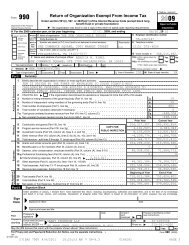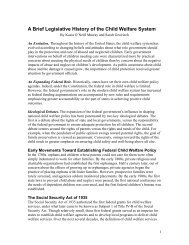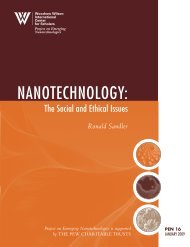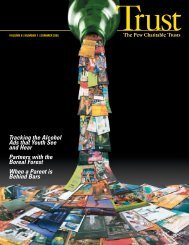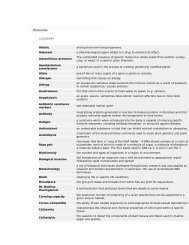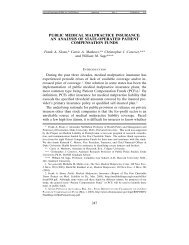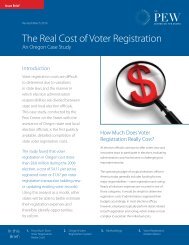After Heparin: - The Pew Charitable Trusts
After Heparin: - The Pew Charitable Trusts
After Heparin: - The Pew Charitable Trusts
You also want an ePaper? Increase the reach of your titles
YUMPU automatically turns print PDFs into web optimized ePapers that Google loves.
—Chapter 1—<br />
Case study 4<br />
Biochimica Opos: Antibiotic ingredients sourced<br />
from undisclosed suppliers<br />
In the mid- to late 1990s, an Italian pharmaceutical manufacturer making bulk antibiotics for the U.S.<br />
market deliberately falsified records to conceal from the FDA its use of undisclosed manufacturing<br />
sites. 213,214 <strong>The</strong> manufacturer, Biochimica Opos (Opos), was at the time a wholly owned subsidiary of<br />
French drug company Roussel-Uclaf. 215<br />
<strong>The</strong> FDA visited Opos’ factory in Agrate Brianza, Italy, in May 1996 for a post-approval inspection<br />
and became concerned by apparent inconsistencies in information given to them by employees<br />
at the plant, including records documenting where the materials used to make one antibiotic—<br />
cefaclor—had been manufactured. 216 In October 1996, Roussel-Uclaf admitted it had not produced<br />
cefaclor in accordance with its approved marketing application, and also admitted to similar infractions<br />
for antibiotics clindamycin and minocycline for the U.S. market. <strong>The</strong> company recalled the<br />
three products and withdrew its approved marketing applications. 217<br />
<strong>The</strong> case was referred to the FDA’s Office of Criminal Investigations in 1997 218 and culminated in<br />
multiple felony charges, including conspiracy and distribution of adulterated drugs in interstate<br />
commerce with intent to defraud or mislead. 219 On October 19, 2001, five years after the FDA’s<br />
initial inspection, Roussel-Uclaf’s successor, Aventis Pharma A.G., pleaded guilty to these charges<br />
and was ordered to pay a $23,193,600 criminal fine and forfeit $10 million in proceeds to the<br />
U.S. government. 220<br />
Roussel-Uclaf had falsified batch production records, raw material logs and work orders to create<br />
the appearance that all of its manufacturing occurred at sites designated in its approved U.S.<br />
marketing application. 221 In reality, the company was outsourcing the manufacture of materials used<br />
to make cefaclor to facilities in Italy, France and Romania that were not listed in its application or<br />
inspected by the FDA. 222 This put Opos in knowing breach of its approved manufacturing pathway.<br />
Further, Opos was found to have used a different, unapproved chemical in place of a required<br />
chemical for cefaclor processing. 223<br />
<strong>The</strong> Opos case represented the first time a foreign corporation making a drug product entirely outside<br />
of the United States received a criminal punishment for defrauding the FDA. 224 One FDA agent<br />
reported that the investigation was made difficult by its foreign nature; in particular, some potential<br />
witnesses were not subject to U.S. subpoena. 225 However, U.S. investigators did receive assistance<br />
from foreign authorities in accessing important documents and witnesses. 226 To support this type of<br />
cooperation, the FDA should be allowed to share all information, including trade secret information,<br />
in a protected manner with foreign agencies—a general authority that it does not currently have<br />
(see section 2.4.3). 227 As drug manufacturing becomes increasingly globalized, international collaboration<br />
is essential for improving oversight and identifying wrongdoing.<br />
32<br />
<strong>Pew</strong> Health Group


